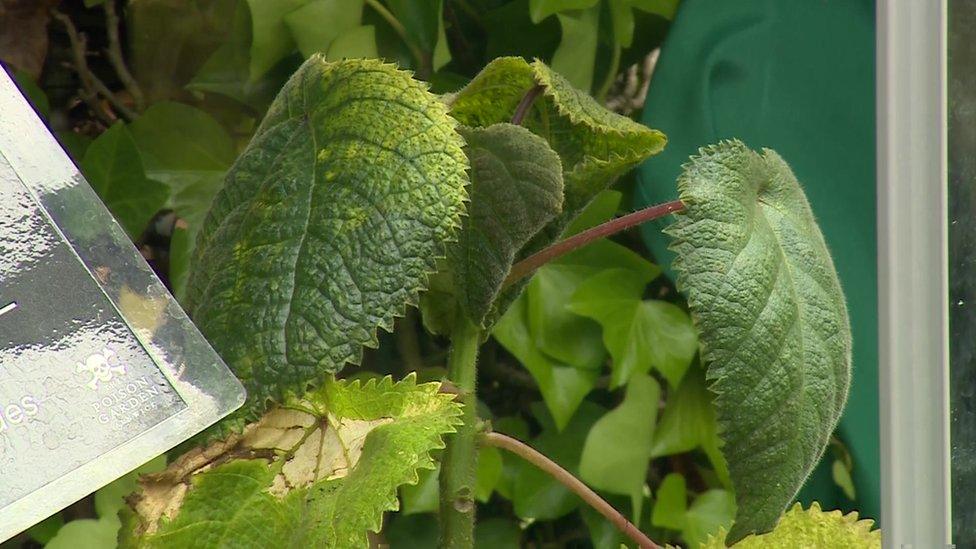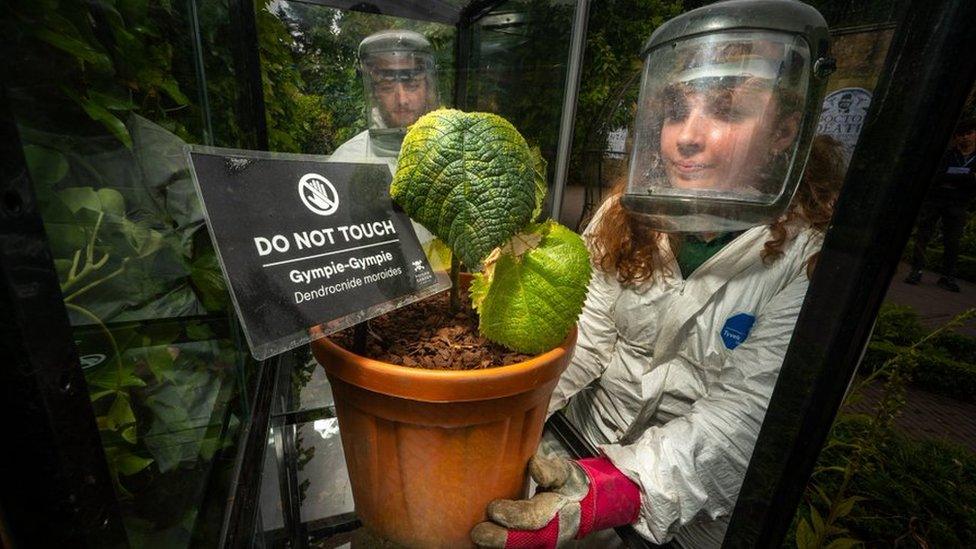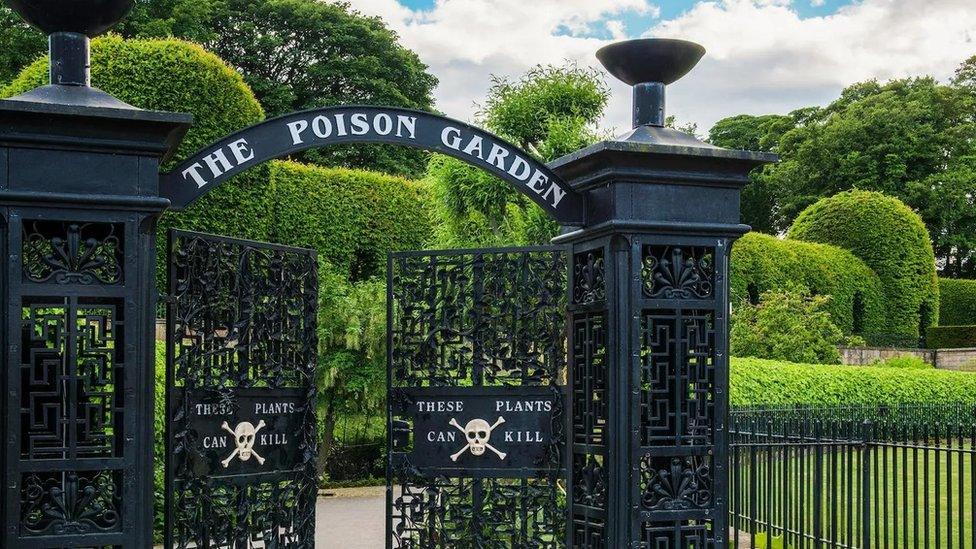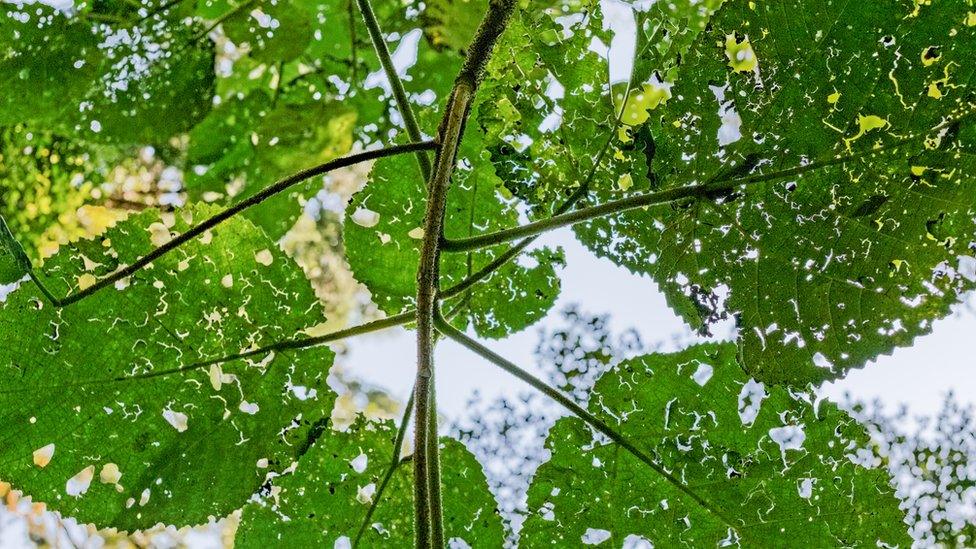Venomous gympie-gympie plant locked up at Alnwick Garden
- Published

One touch of the Dendrocnide moroides, known as gympie-gympie, can leave its victim in extreme pain for weeks
One of the world's most venomous plants which causes pain like being "electrocuted and set on fire at the same time" has come to Northumberland.
The Dendrocnide moroides, known as gympie-gympie, has been introduced to Alnwick Garden's Poison Garden, where it will stay under lock and key.
The plant, housed in a glass case, has its own minder because even a slight brush with it can cause extreme pain.
The stinging plant is usually found in Australian rainforests and Indonesia.

The plant must be kept in a locked glass cabinet
John Knox, lead tour guide at the Poison Garden, said: "There's little hairs on it, so if you brush past it and there's any skin contact, the hairs from the plant grow under the skin, break off and inject venom - which has been described as being electrocuted and set on fire at the same time."
A single touch of the plant can leave its victims suffering for weeks or even months.

Visitors are strictly prohibited from smelling, touching, or tasting any plants in the Poison Garden
The plant has been assigned its own keeper at the North East attraction who has the duty of watching, feeding and watering it.
Mr Knox added: "It's locked behind glass as if hairs from the plant are blown out of the cabinet they could cause a serious allergy."
In 2020 scientists in Australia found toxins produced by the plants bore a strong resemblance to those of spiders and scorpions.
Researchers said they found the molecular structure of the venom was knotlike, allowing the toxin to tangle and repeatedly target pain receptors in the victim.
The Poison Garden, which was established in 2005 as part of the tourist attraction developed by the Duchess of Northumberland, is home to more than 100 toxic, intoxicating and narcotic plants.
Before visitors are allowed to enter, they must have a safety briefing and some people have fainted from inhaling toxic fumes while walking in the garden.

Follow BBC North East & Cumbria on Twitter, external, Facebook, external and Instagram, external. Send your story ideas to northeastandcumbria@bbc.co.uk, external.
- Published17 September 2020

- Published13 June 2013